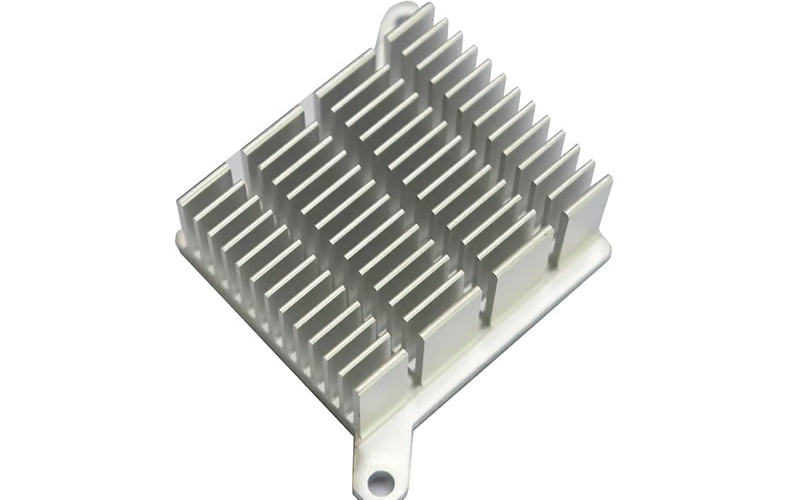Introduction
When it comes to building a high-performance computer, choosing the right CPU cooler is crucial. It helps maintain the optimal temperature of the processor, so it can function efficiently. One of the key factors that determine the quality of a CPU cooler is the material used in its construction. In this article, we'll take a closer look at the various materials used in CPU coolers and determine which one is the best for your system.
Copper
Copper is one of the most commonly used materials in CPU coolers. It has excellent thermal conductivity, which means it can conduct heat away from the CPU quickly and efficiently. Copper also has a high melting point, which makes it suitable for high-temperature applications. However, copper is heavy and expensive compared to other materials. Copper coolers are also more difficult to manufacture and require more maintenance.
Aluminum
Aluminum is another popular material used in CPU coolers. It has good thermal conductivity and is lightweight, making it easy to install. Aluminum coolers are also inexpensive compared to copper coolers. However, aluminum has a lower melting point compared to copper, which means it may not be suitable for high-temperature applications. Aluminum coolers are also prone to corrosion, which can reduce their lifespan.
Heat Pipes
Heat pipes are not technically a material, but they are often used in CPU coolers. They are thin, hollow tubes filled with liquid or gas that transfer heat away from the CPU. Heat pipes are highly efficient and can transfer heat away from the CPU quickly. They are also lightweight and easy to install. However, heat pipes require a lot of surface area to dissipate heat effectively. This means that CPU coolers with heat pipes may be larger than other types of coolers.
Ceramic
Ceramic is a newer material used in CPU coolers. It has excellent thermal conductivity and is lightweight. Ceramic coolers are also more durable compared to copper and aluminum coolers. Additionally, ceramic coolers are resistant to corrosion and can withstand high temperatures. However, ceramic is a relatively new material and may be more expensive compared to copper and aluminum.
Liquid Cooling
Liquid cooling is an alternative method of cooling a CPU. It involves circulating a liquid coolant through a series of tubes and blocks to transfer heat away from the CPU. Liquid cooling is highly efficient and can keep the CPU temperature low even under heavy loads. It also allows for more precise temperature control compared to air cooling. However, liquid cooling is more expensive and requires more maintenance compared to air cooling. It also requires more space in the computer case.
Cooler Size
The size of the CPU cooler is an important factor to consider when choosing a material. Larger coolers can dissipate heat more effectively compared to smaller coolers. However, larger coolers may not fit in smaller computer cases. It's important to choose a cooler that fits your computer case and provides sufficient cooling performance.
Price
Price is another important factor to consider when choosing a CPU cooler. Copper coolers are typically the most expensive, followed by ceramic, aluminum, and heat pipes. Liquid cooling systems are the most expensive type of CPU cooler. It's important to choose a cooler that fits your budget while providing sufficient cooling performance.
Noise
The noise level of the CPU cooler is another important consideration. Copper and ceramic coolers are usually quieter compared to aluminum and heat pipes. Liquid cooling systems can also be quieter compared to air cooling systems. It's important to choose a cooler that provides sufficient cooling performance while producing minimal noise.
Conclusion
In conclusion, there are several materials used in CPU coolers, each with its own advantages and disadvantages. Copper coolers have excellent thermal conductivity but are heavy and expensive. Aluminum coolers are lightweight and inexpensive but may not be suitable for high-temperature applications. Heat pipes are highly efficient but require more surface area. Ceramic coolers are lightweight and durable but may be more expensive compared to other materials. Liquid cooling is highly efficient but more expensive and requires more maintenance. It's important to consider factors like cooler size, price, and noise level when choosing a CPU cooler that fits your needs.
cpu cooler, material, copper, aluminum, heat pipes, ceramic, liquid cooling, cooler size, price, noise
What material is best for CPU cooler?? A Comprehensive Guide
Uncover the advantages and disadvantages of different materials used in CPU coolers, including copper, aluminum, heat pipes, ceramic, and liquid cooling. Choose the best material that fits your needs today.
Quote Inquiry
Contact us!

